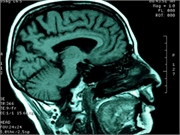Elevated exosomal, plasma levels of NfL also linked to chronic PCS, PTSD, depressive symptoms
WEDNESDAY, May 27, 2020 (HealthDay News) — Repetitive mild traumatic brain injuries (mTBI) are associated with elevated exosomal and plasma levels of neurofilament light (NfL) chain, according to a study published online May 27 in Neurology.
Vivian A. Guedes, Ph.D., from the U.S. National Institutes of Health in Bethesda, Maryland, and colleagues measured exosomal and plasma levels of NfL chain, tumor necrosis factor (TNF)-α, interleukin (IL)-6, IL-10, and vascular endothelial growth factor (VEGF) using an ultrasensitive assay in a cohort of 195 veterans. Relationships between candidate biomarkers and symptoms of postconcussive syndrome (PCS), posttraumatic stress disorder (PTSD), and depression were examined.
The researchers observed an association for elevated exosomal and plasma levels of NfL with repetitive mTBIs and with chronic PCS, PTSD, and depressive symptoms. There was an association seen for plasma TNF-α levels with PCS and PTSD symptoms. An association was noted for the total number of mTBIs with exosomal and plasma NfL levels and plasma IL-6. Higher exosomal NfL and lower plasma IL-6 levels were seen in association with an increased number of years since the most recent TBI; an increased number of years since first TBI was associated with higher levels of exosomal and plasma NfL, and with plasma TNF-α and VEGF.
“Our findings demonstrate the potential of these easily accessible biomarkers as predictors of behavioral alterations in veterans years after mTBI and provide insights into potential underlying pathologic mechanisms,” the authors write.
Copyright © 2020 HealthDay. All rights reserved.








